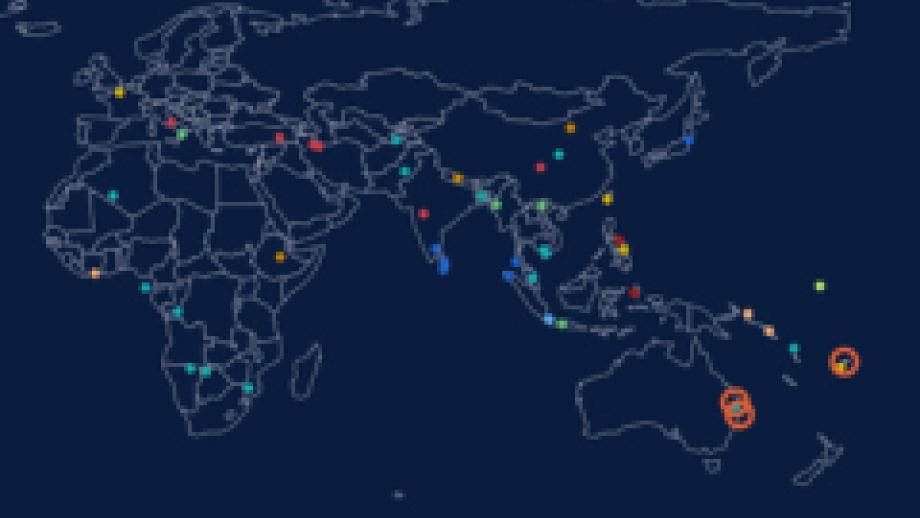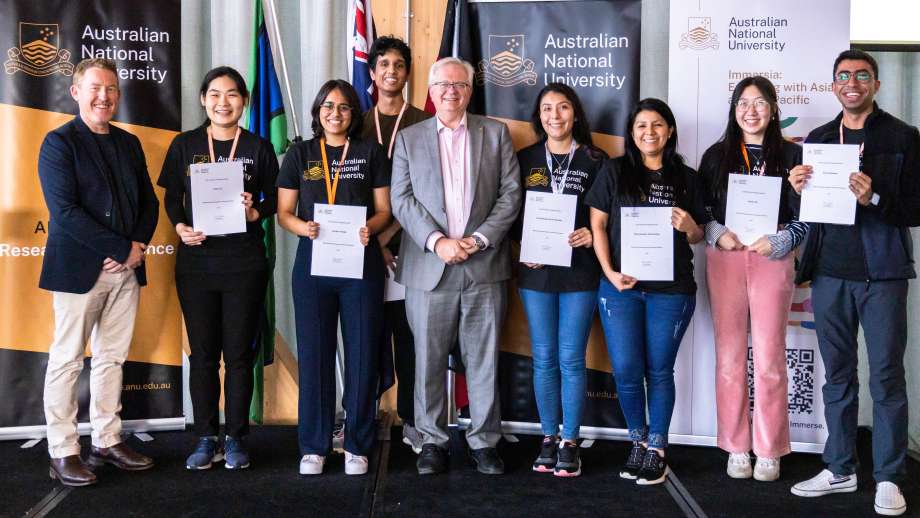The evolution of trade policy governance
Presented by ANU College of Asia & the Pacific
The international trading system has undergone a radical shift over the twenty years. Multilateral trade negotiations at the World Trade Organization have generated only limited results while preferential trade agreements (PTAs) have proliferated and become the primary mechanism for regulating trade and investment flows.
In this presentation, Nicholas examines three key questions. First, how has the architecture of the trade governance system changed since the end of the 20th century? Second, in what ways have relational mechanisms influenced the evolution of the trade governance architecture? Third, how do changes in the trade governance architecture affect governance outcomes?
Nicholas' thesis employs a complexity-based relational framework in conjunction with tools drawn from network science to make a series of theoretical, empirical, and methodological contributions. This thesis put in place the first elements of a relational theory of complex interdependence that incorporates the interdependence of actors as a core theoretical component.
Substantively, the thesis describes the macro structure of the trade governance system, provides a relational account of the evolution of this structure, investigates the relational drivers that influence system design, and, for the first time, maps the topology of the e-commerce governance subsystem.
Methodologically, this thesis applies novel approaches to inferential network modelling and network topology - including the use of a two-mode coevolving multiplex model and the first application of Kim's (2020) typology of network measures.
This seminar is Nicholas's final presentation of his doctoral candidature.
About the speaker
Nicholas Frank is an Associate Lecturer in the School of Politics and International Relations and a PhD candidate in the School of Regulation and Global Governance at the Australian National University (ANU). He specializes in the political economy and governance of trade and investment with a focus on the Indo-Pacific. Nicholas employs formal theory, econometrics, inferential network approaches, and text-as-data techniques in his research.
Prior to undertaking his position at the ANU, Nicholas worked at the World Trade Organization (WTO) and the International Centre for Trade and Sustainable Development (ICTSD) on topics including WTO accessions, service sector regulation and development, global value chain integration and upgrading, and e-commerce and disruptive technologies. He serves as a consultant to the International Trade Centre (ITC) on a variety of trade and development issues including trade and gender. Nicholas has presented his research at conferences and high-level policy dialogues across Europe, Africa, Southeast Asia, and Oceania.
Nicholas holds a Master of Science (International Political Economy) from the London School of Economics, and an Honours degree (International Relations) and Bachelor of Commerce (Politics, Philosophy, and Economics) from the University of Cape Town.
This event will be delivered online via Zoom only.
Image credit: Aerial view of orderly shipping containers from maxpixel, (CC0)
Location
Speakers
- Mr Nicholas Frank
Contact
- RegNet



